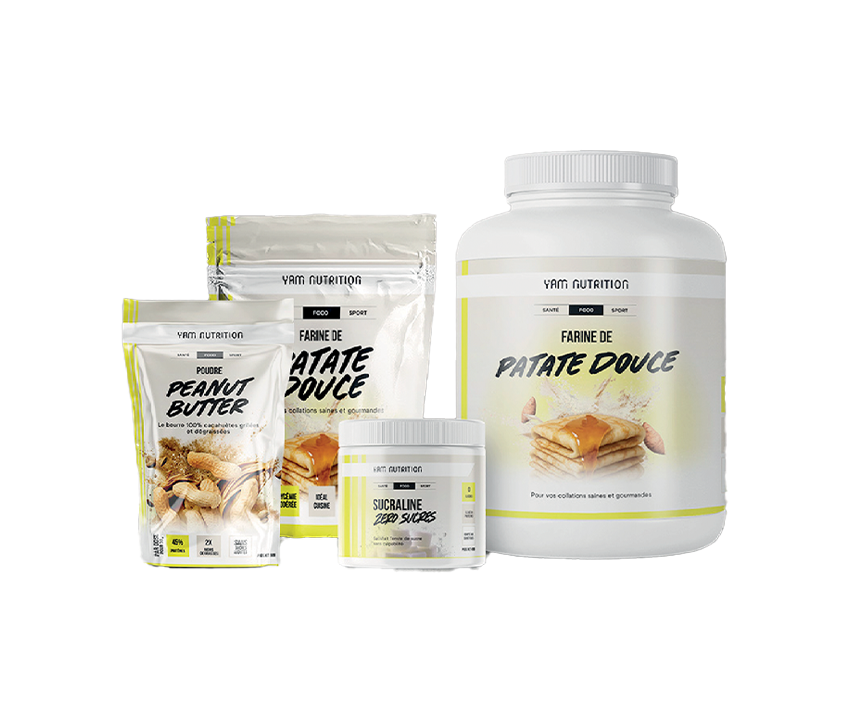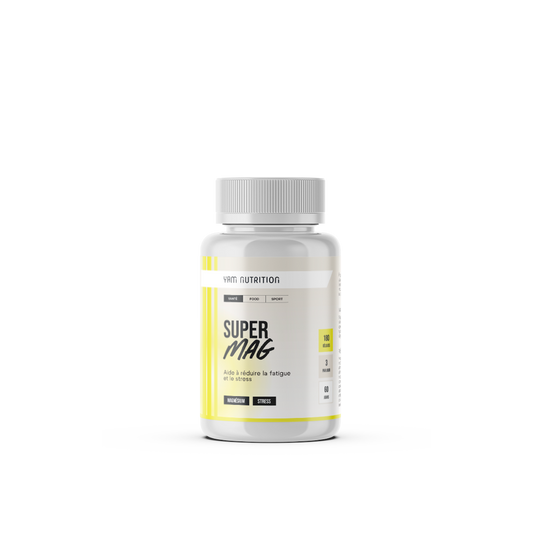The importance of magnesium

Sommaire
- Magnesium, the mineral for health and physical performance
- Magnesium is involved in the relaxation of muscle fibers and many other physiological processes.
- What are the food sources of magnesium?
- Deficiencies are problematic for sedentary people and athletes
- Scientific research on this mineral essential for athletic performance
Magnesium deficiencies can be easily corrected…
Both calcium and magnesium are critically important for muscle contraction and nerve conduction. This is obvious, even if very few bodybuilding athletes are truly aware of it. While calcium deficiency is rarely discussed, magnesium deficiencies are much more common. They are problematic and observed in athletes as much as in sedentary people. However, magnesium remains one of the minerals that could help bodybuilders the most, even though they still doubt its importance. This is especially true since it is essential for many metabolisms, directly or indirectly linked to physical and athletic performance.
In this article we will see that magnesium is a mineral essential in many ways. It is as much for your health and energy as it is for ensuring the best possible athletic performance...
Magnesium, the mineral for health and physical performance
Considered essential, magnesium contributes to the normal functioning of your metabolism. This is an understatement, as it is involved in more than 300 enzymatic reactions. It is also associated with other minerals like potassium, calcium, and sodium. These minerals are in balance with each other. 50% of the body's magnesium is found in muscles, liver, and other tissues. Physiologically, this mineral directly opposes calcium ( which triggers muscle contraction ) to allow muscle relaxation. Calcium ions and phosphatidylcholine trigger muscle contraction. In contrast, Mg inhibits contraction. This function is vital for both skeletal muscles and the heart itself. Maintaining a regular heartbeat is one of magnesium's major functions.
Magnesium is involved in the relaxation of muscle fibers and many other physiological processes.
Magnesium also plays a role in balancing blood sugar levels, blood pressure, and fat metabolism. It normalizes nervous tension, making it a good anti-stress supplement. In this context, a magnesium treatment can be considered on an ad hoc basis or repeated several times a year, without any inconvenience. At Yam Nutrition, we have chosen SuperMAG, an assimilable magnesium supplement based on bisglycinate for a better bioavailability . SuperMAG provides you with 300 mg of magnesium with 400 mg of Taurine, a sulfur amino acid derivative that facilitates its assimilation. Our multivitamin Nu Power also provides you with 125 mg of this mineral essential for your health and athletic performance.
What are the food sources of magnesium?
Cocoa is probably the most well-known source of magnesium for gourmands. However, it is also found in most legumes, whole wheat, nuts and whole seeds, and brewer's yeast. Green vegetables are also rich in magnesium. The greener they are, the more magnesium they contain, since chlorophyll is a molecule that contains a magnesium atom in its center. Conversely, hemoglobin contains an iron atom in its center. However, avoid food and refined grains because a large part of their minerals have been removed during refining. Almonds, cashews, Brazil nuts or certain fish like halibut also contain a significant amount.
Deficiencies are problematic for sedentary people and athletes
Deficiencies in this essential mineral are quite common, but it is never easy to realize them. Indeed, they are difficult to highlight because the symptoms are not easy to determine. If we consider that the needs of an adult are 450 to 500 mg per day, it is quite easy to realize that deficiencies can be common. Still, this type of deficiency is harmful to health in the long term. Similarly, the absorption of certain minerals such as potassium or manganese can reduce that of magnesium because assimilation is competitive. If this is the case, it is mainly a sign that your diet is particularly deplorable (chronic absence of vegetables and fruits for example...). Overall, a magnesium deficiency can lead to fatigue, general weakness, lack of energy or loss of appetite. A more serious deficiency will then lead to the appearance of muscle cramps, cardiac arrhythmia followed by coronary spasms in the worst cases.
Scientific research on this mineral essential for athletic performance
Today, scientific research on this essential mineral has made it possible to establish a link between blood magnesium levels and the risk of suffering from cardiovascular problems. Health problems such as hypertension or stroke cannot be ruled out. However, a magnesium supplementation does not link it to a lower risk of stroke. However, in those who suffer from hypertension, taking a supplement may help lower blood pressure. Similarly, the incidence of type 2 diabetes may be linked to low dietary magnesium intake. Too little of this essential mineral may also lead to increased insulin resistance. According to researchers, this important mineral may help prevent diabetes, but its usefulness in treating this disease is not yet well established.
The fact remains that an optimal intake of magnesium is essential for your health, but also for sports and athletic performance. Like vitamin D, it is a mineral that contributes to achieving maximum muscle strength. Indirectly, it is also linked to muscle growth in bodybuilders. Clearly, a deficiency is detrimental to health, sports performance, strength and muscle growth.
YAM Nutrition
Eric MALLET
Spécialiste en Nutrition Sportive





